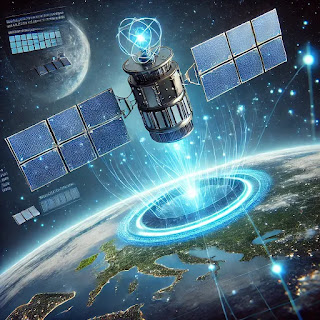Quantum Satellite: The Future of Secure Communication

India is set to revolutionize secure communications by launching its first quantum satellite within the next 2-3 years . This ambitious initiative will place India at the forefront of quantum technology , enhancing cybersecurity, data protection, and encrypted communication. With advancements in Quantum Key Distribution (QKD) and the National Quantum Mission (NQM) , India is making significant strides in next-generation secure networks . In this article, we explore quantum satellites, how they work, their benefits, and their impact on global communication security . What is a Quantum Satellite? A quantum satellite is a next-generation communication satellite that leverages quantum physics principles to ensure unbreakable encryption and secure data transmission . Unlike conventional communication systems, quantum satellites use quantum mechanics-based encryption , making them immune to cyberattacks and eavesdropping . How Does a Quantum Satellite Work? Quantum Key Distribution (QK...



